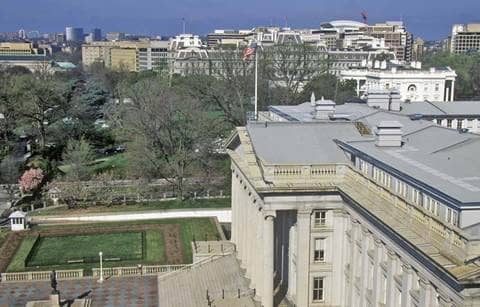FASB update
The Financial Accounting Standards Board (FASB) did not issue any Accounting Standard Updates (ASUs) in the third quarter of 2019 that directly impact oil and gas companies.
In August 2019, the FASB issued an exposure draft proposing new effective dates for three major accounting standards issued in recent years. The exposure draft addressed the effective dates for accounting for leases, credit losses, and hedging. The FASB is now considering comments received on the proposal. We’ll have more information in the fourth-quarter newsletter.
In issuing the proposal, the FASB considered feedback from companies regarding the challenges of implementing the revenue recognition standard as well as the other new rules on the horizon. The significant new accounting rules have created a significant burden especially for private companies and smaller reporting companies (SRCs).
The proposed effective dates for calendar-year-end companies are as follows:
Lease accounting:
- Public business entities, employee benefit plans, and conduit bond obligors (no change) effective date: January 2019
- All other entities effective date: January 2021
Derivatives and hedging:
- Public business entities (no change) effective date: January 2019
- All other entities effective date: January 2021
Accounting for credit losses:
- SEC filers, excluding SRCs effective date: January 2020
- All other entities: January 2023
We do not recommend that private company management teams delay lease implementation efforts. Public companies have found that actual implementation often takes longer than anticipated. The new lease standard is expected to impact all oil and gas companies.
We also previously covered key Accounting Standards Updates (ASUs) that may impact oil and gas companies, along with the effective dates, for calendar-year companies.
Private companies are currently focused on implementation of ASC 606, Revenue from Contracts with Customers, which is effective year end 2019 for calendar-year companies.
SEC updates
Amendment to single issuer exemption for broker dealers
Effective Aug. 13, 2019, the SEC adopted an amendment to an exemptive provision in the broker-dealer annual reporting rule under the 1934 Securities and Exchange Act providing that a broker dealer is not required to engage an independent public accountant to certify the broker-dealer’s annual reports filed with the SEC if, among other things, the broker-dealer’s securities business has been limited to acting as a broker (agent) for a single issuer in soliciting subscriptions for that issuer’s securities.
New rule to allow all issuers to “test-the-waters”
In September 2019, the SEC voted to adopt a new rule that extends a “test-the-waters” accommodation, currently a tool only available to emerging growth companies (EGCs), to all issuers. This new rule will allow all issuers to gauge market interest in a possible initial public offering or other registered securities offering through discussions with certain institutional investors prior to, or following, the filing of a registration statement. The expanded test-the-waters provision will provide all issuers with flexibility in determining whether to proceed with a registered public offering while maintaining appropriate investor protections.
The new rule is one of several SEC initiatives that build on Jumpstart Our Business Startups Act (JOBS Act) provisions intended to encourage companies to access our public markets. The rule will become effective 60 days after publication in the Federal Register.
New rules and amendments under Title VII of Dodd-Frank
In September 2019, the SEC adopted a package of rules and rule amendments under Title VII of the Dodd-Frank Wall Street Reform and Consumer Protection Act (Dodd-Frank Act). These actions establish recordkeeping and reporting requirements for security-based swap dealers and major security-based swap participants and amend the recordkeeping and reporting requirements for broker-dealers. Under these rules, these companies will be required to create and retain fundamental business records to document and track their operations, facilitating the Commission’s ability to monitor compliance and reducing risk to the market.
The rules will become effective 60 days after publication in the Federal Register. The compliance date for the rule amendments and new rules is 18 months after the effective date of any final rules addressing the cross-border application of certain security-based swap requirements.
Proposal to modernize disclosures of business, legal proceedings, and risk factors under Regulation S-K
In August 2019, the SEC proposed amendments to modernize the description of business, legal proceedings, and risk factor disclosures that registrants are required to make pursuant to Regulation S-K. The amendments are intended to improve these disclosures for investors and to simplify compliance for registrants by improving the readability of disclosure documents, as well as discouraging repetition and disclosure of information that isn’t material.
These proposals are part of a comprehensive evaluation of the Commission’s disclosure requirements that was recommended in the staff’s Report on Review of Disclosure Requirements in Regulation S-K as mandated by the JOBS Act.
Comments on the proposed rule are due Oct. 22, 2019.
PCAOB updates
Critical Audit Matters (CAMs) resources for audit committees and investors
In July 2019, the PCAOB released two new resources on CAMs, one specifically for investors and the other for audit committees.
- Insights for Investors explains the origins of the CAMs requirements, the function of the auditor’s report, recent changes, and the effective dates of the new standard, which took effect on June 30, 2019, for large accelerated filers.
- Insights for Audit Committees includes information about discussions between auditors and audit committees about CAMs, such as questions that audit committees should consider asking about CAMs, whether a data breach should be considered a CAM, and the difference between CAMs and key audit matters, which are the international equivalent to CAMs required for audits performed under the International Standards on Auditing.
Guidance for new requirements on auditing estimates and auditor’s use of the work of specialists
In August 2019, the Public Company Accounting Oversight Board (PCAOB) released four staff guidance documents to raise awareness and assist auditors in advance of the effective date of new estimates and specialists audit requirements that are effective for audits of financial statements for fiscal years ending on or after Dec. 15, 2020.
The staff guidance consists of:
- Auditing Accounting Estimates
- Auditing the Fair Value of Financial Instruments
- Supervising or Using the Work of an Auditor's Specialist
- Using the Work of a Company’s Specialist
The first two documents highlight aspects of the new standard and enhancements made to integrate the PCAOB’s risk assessment requirements when auditing accounting estimates, including fair value measurements. The other two documents highlight aspects of new requirements that apply when auditors use the work of specialists in an audit and when an auditor uses the work of a company specialist as audit evidence.
The PCAOB has additional implementation resources on their website for the new estimates standard and amendments for the auditor’s use of the work of specialists, which are helpful for auditors, registrants, and audit committees in understanding the upcoming requirements.
If you have any questions, please give our oil and gas team a call.





